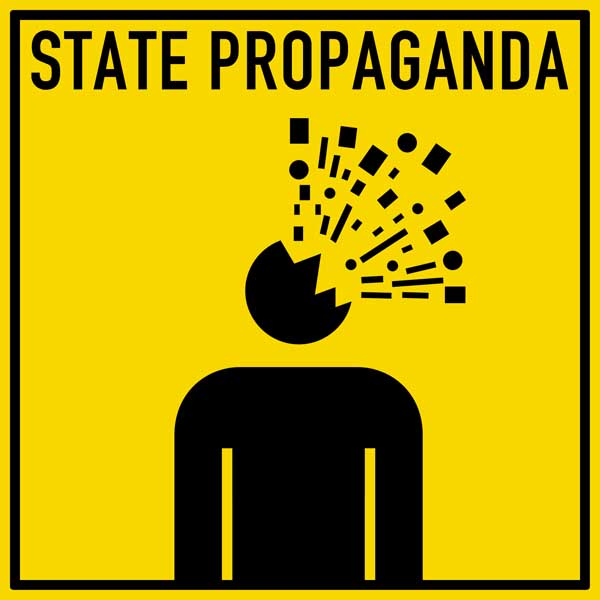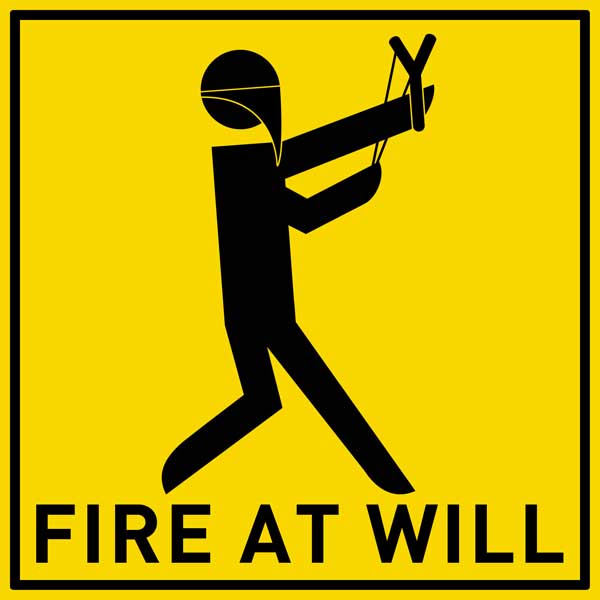|
|||||||||||||
|
Demand Freedom By Punkerslut
Introduction to the Problem
Our experience is largely social. We don't define ourselves so much in terms of nature and the world, as we do in terms of other people. And how we choose to see ourselves is ultimately a learning experience. Students who are trying to improve their understanding of the world have every reason to become dissatisfied with their school. The classes are designed for a mediocre audience. They fail to reach those who need more time, while not giving enough opportunity to those with a better knowledge. The subject material, too, often is unsuited to the audience. Students learning to become surgeons must learn organic chemistry, even though it will have nothing to do with their occupation. The school has described its intentions as the intellectual advancement of its pupils. And every student has some personal knowledge on how the learning institution violates this principle. There are compromises with the school's mission of educating its population. In the authority of the teachers, the substance of the textbooks, the restriction of the students -- in all of these, the school does not make a decision based on uplifting its learners. The principals and superintendents make decisions that are easy for them, but difficult on the students. Those who attend these places of learning have every reason to think that the environment is unfit to making them educated. But how can they make things different? They can approach the staff, the professors, and the managers of the institution, and ask for changes. They can make appeals, pass around petitions, and write letters. But essentially, all that they are doing is begging for change. The activist is trying to reform and redevelop the education system to better serve the students. The power to do this, however, rests solely and exclusively in the hands of the school's administration. No matter what you do, it is not a decision that you can make. It is only a decision that a professor or principal can concede to. Trying to create change by yourself has had almost no effect, or it only changed things for one person. It was never able to reform or revolutionize the system of school. If the strength of one is not enough to make things different, then we need the force of many. One style of organization that fits this situation is the Student Strike and the Student Union. By all of us resisting together, we are capable of making a collective impact -- we are able to impose our demands upon those who have always called themselves our masters. This is truly a powerful form for those of us who want to make a creative environment for all students. Ideal Tactics for an Ideal World
What exactly is the purpose, the intention, and the method of the Student's Union? The strategy is far more involved and complicated than simply asking students to not go to class. It involves building the organization, developing a community awareness of the problem, and even trying to negotiate with teachers and principles before strike action is taken. At the very least, such negotiation will serve to advance the interests of the students, or it will prove that the educators are uninterested in the concerns and feelings of their pupils. Drawing out our activity to include reaching out to media and social outlets, as well as protests and demonstrations, make the struggle wear more heavily on the school administration. They'll be feeling the influence of the student union long before a strike is ever declared. And finally, for the success of such a strike, it will require a great number of those attending the school. Building up mass support before open resistance is important. To quote Sun Tzu, from The Art of War, "Victorious warriors win first and then go to war, while defeated warriors go to war first and then seek to win." [*1] This is what leads up to the moment where the students make their demands into action, where the ideal becomes real. It is when we collectively refuse to go to classes, to take tests, or to cooperate in any way with the school's officials. It is a boycott of the school. For our entire lives, we always had to obey the commands of our instructors and professors. The most significant thing about the student strike is the disruption of this authority. They'll even resort to simply ordering the students back to class, as though they were confiscating chewing gum. But they really feel threatened and powerless when everyone refuses to acknowledge their authority. The student strike is much like the worker's strike. It is organized by those who are on the bottom, and treated like possessions by those on top. It has for its purpose the advancement of everyone, the bettering of the great masses. And similarly, it realizes that it cannot improve itself by working with the oppressors -- that is who we must strike against! For the wage-earner, it is their employer, and for the student, it is the administrative staff of their institute. But beyond these smaller things, there are greater powers at work. There is an entrenched, international system of capitalism behind every business; just like there is a powerful, bureaucratic, government agency behind every school. Though it is not as apparent, the student strike also has the ability of inflicting an economic loss. The direct purpose of the worker's strike is to starve the boss out of the labor the business needs; the pressure applied is by limiting the income of their business. Similarly, the students are able to strike at the finances of their exploiters. If students are on strike for long enough, they'll be unable to graduate to the next grade. This means that the school will have a group of teachers that teach classes without students, and a group of teachers that can't possibly handle their student load. Like any business, schools are most intimidated when their budget is threatened. The superintendent wouldn't want to hire new teachers, or to redistribute untrained instructors to new courses. Both of these would put friction and conflict between educational staff and the administrators When the students strike together, they can really force a difficult decision upon the staff of the educational system.
Most important, though, is the moral effect of the student strike. The message we give to the community, by making such an abrupt withdrawal from our classes, is that we are unsatisfied in our learning experience. The ideas we are learning and the behavior we are being trained in -- we do not feel that it has any relation to who we are as people in society, or what we expect to become in the world. Unrest, discontent, and the rumbling of the vast amounts of people. This is the real impact that the student strike should expect to have, if it wishes to succeed. The student union must be able to communicate its desires for change effectively and appropriately. It must be able not only to make their oppressors see the need for change, but it must make its community sympathize with it. Its demands must be made clearly and openly. And when it strikes, it should not just shut itself up inside, and avoid school. It should organize pickets, demonstrations, and leafleting It should organize meetings and shout its message all throughout their neighborhoods. Where it is striking for the first time, it ought to be over something immediate and clearly recognizable. Perhaps the retraining of an instructor to be less aggressive or critical of their students. Maybe certain classes need to be offered, that students feel their intellect isn't properly challenged, or they feel certain required classes have no place in a fair education. This is a tactic borrowed from union organizing among the workers. The first strike should be about really improving the standards of living, so that everyone can sympathize with it and build up its support. Where there is rebellion against authority's abuse, there is often also rebellion against any form of authority. The student union, in resisting the oppressive standards put upon them by teachers, will start to demand more and more. Why is class required at all? Why must we have a curriculum? If it doesn't make us become individuals, why must we ask permission to talk and go to the bathroom? If it only makes us become more dependent and submissive, why do we have to obey teachers who are sometimes verbally or physically violent? Abolish the school system, and make learning an act that is freely taken, and not forced upon the individual! This must be the final end of the student union that really represents its students' interests. What Has Worked Before and What Will Work Now
Student strikes are a legendary part of human conflict, one that rises between the youth and their world against the aged and the their expectations. It is like the union strikes, the local uprisings against dominating government, and revolutions against slavery and bondage. It is not something limited to only our time and our era, but something that we have inherited from our civilization. Where there is inequality, there will be worker uprisings, and where there is indoctrination, there will be student strikes. The social ill, by diseasing society, makes the cure all the more necessary. In the year of 1229, students at the University of Paris went on a strike lasting nearly two years, leading to greater protection of the students from church and government domination. [*2] The Russian Revolution of 1905, which brought about a constitutional rule in place of absolute monarchy, was similarly accompanied by student protests and uprisings. [*3] In May of 1968, students in Paris organize a strike at their schools and universities, which eventually inspired two thirds of the French workers to strike. [*4] [*5] In 1969, the Weather Underground was formed from the organization Students for a Democratic Society, or the SDS. The Weather Underground bombed federal, military, and prison buildings, while always warning ahead of time so as to prevent the loss of human life. [*6] [*7] The protests at Tienanmen Square against government corruption and for democracy were organized largely by students. [*8] [*9] You do not have to dig deep into the past to see insurrection among "the learning class." Even today, pupils from every institution are ready to focus on resistance to whatever authority wants to impose upon their lives. In Greece, in 2005, the right-wing government was planning to increase tuition fees and to privatize the cafeteria meals in schools. Massive demonstrations and widespread student strikes caused the government to withdraw its proposal. [*10] [*11] [*12] In 2008, police officers shot and killed a fifteen-year old in Greece. Students protested the death of their colleague by occupying universities and school all throughout the country. There was an escalating antagonism between the people and their government. Thousands of students marched in the street and attacked police departments with Molotov cocktails. [*13] [*14] These students went on strike, because they realized that their experiences of the world was incompatible the lessons of their instructors. What they felt and knew by living was completely different from what their schoolmasters had been lecturing to them. It developed as an outpour of passion over wrongs and injustice. It was about individuals coming together, understanding each other's interests, and then actually mutually create liberty for all. This is the natural spirit of the student strike. Punkerslut, Resources *1. "The Art of War," by Sun Tzu, chapter 4.
|




